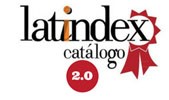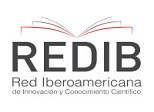Epistemological Nomadism of Inclusive Education
DOI:
https://doi.org/10.69890/hallazgos21.v5i2.466Keywords:
inclusive epistemology of education; epistemological nomadism; transpositions; epistemic diasporism; alterativity.Abstract
In this work I explore the analytical configurations of the concept of epistemological nomadism of inclusive education, a space that inaugurates a new way of conceiving and practicing heuristic work. Its eventual, alterative and transformative nature of thought patterns describe it as a powerful resource and system of heuristic reasoning. Epistemological nomadism? The forms of knowledge production are always forms of intervention-creation-alteration, closely linked to the heuristic and the political. It performs an open, restless and affirmative operation of a non-dialectal nature. It is also a theoretical navigation tool. Subsequently, the work analyzes how the category of inclusion becomes an active process in becoming permanent. It also examines the role of transpositions in the construction of knowledge of inclusive education, allowing us to affirm that the heuristic force of inclusion is a mechanism of mutation of contemporary educational theory. A transposition indicates a cross-border operation in the production of knowledge. It is also a unique way of tropologizing, turning or jumping towards other directions, territories and perspectives. The work closes analyzing epistemological diasporism as a fundamental condition of its epistemology. It also addresses the question of how to read the contributions of different fields and projects of knowledge. It concludes by affirming that inclusive education is an epistemological counter-space whose political, heuristic and methodological force encourages the subversion of established conventions.
References
Bal, M. (2009). Conceptos viajeros en las humanidades: una guía de viaje. Murcia: Cendeac.
Brah, V. (2011). Cartografías de la diáspora. Identidades en cuestión. Madrid: Traficantes de Sueños.
Bradiotti, R. (2006). Transposiciones: Sobre la ética nómada. Barcelona: Gedisa.
Cardenal, T. (s.f.). La extraña dentro: el feminismo nómada de Rosi Braidotti. Recuperado de https://zaguan.unizar.es/record/9242/files/TAZ-TFG-2012-695.pdf
Derrida, J. (1986). Jacques Derrida: leer lo ilegible. Entrevista con Carmen González-Martín. Revista de Occidente, 62-63, 160-182.
Lazzarato, M. (2006). Por una política de lo menor. Acontecimiento y política en las sociedades de control. Madrid: Traficantes de Sueños.
Mengue, Ph. (2008). Deleuze o el sistema de lo múltiple. Buenos Aires: Las cuarenta.
Ocampo, A. (2016). Gramática de la Educación Inclusiva: ejes críticos para cartografiar sus condiciones de producción y funcionamiento epistémico. En: Ocampo, A. (Comp.). Ideología, discapacidad y dominación: los imaginarios constitutivos de la discapacidad en Latinoamérica. (73-159 pp.). Santiago: Fondo Editorial CELEI.
Palaisi, M.A. (2018). Saberes nómades. El sujeto nómade como contra-espacio epistemológico. Enrahonar. An International Journal of Theoretical and Practical Reason, 60, 57-73.
Spivak, G. (2017). Una educación estética en la era de la globalización. México: FCE.
Zemelman, H. (1989). Uso crítico de la teoría. En torno a las funciones analíticas de la totalidad. México: El Colegio de México.
Zemelman, H. (1992). Los horizontes de la razón. I. Dialéctica y apropiación del presente. México: Antrophos.
Published
How to Cite
Issue
Section
License
Los artículos enviados a la Revista Científica Hallazgos21 deberán ser totalmente originales e inéditos.
Los autores son los responsables de los textos y las imágenes incluidas en los artículos y no necesariamente reflejan el pensamiento de la editorial o de la Pontificia Universidad Católica del Ecuador, Sede Esmeraldas (PUCESE).
Los autores disponen cederle a la Revista Científica Hallazgos21 todos los derechos inherentes para la edición, publicación y distribución o divulgación del mismo.
Se autoriza a las revistas firmantes de los acuerdos de Encuentros de Revistas Latinoamericanas para reproducir en parte o totalmente los artículos con la sola mención de la fuente claramente señalada.







